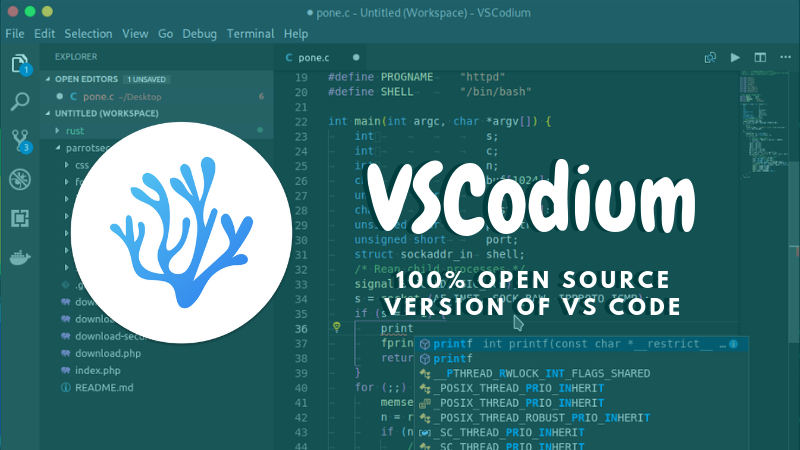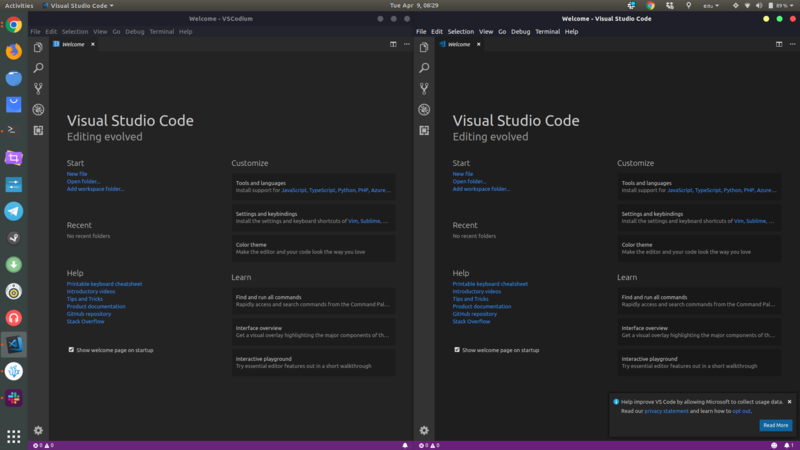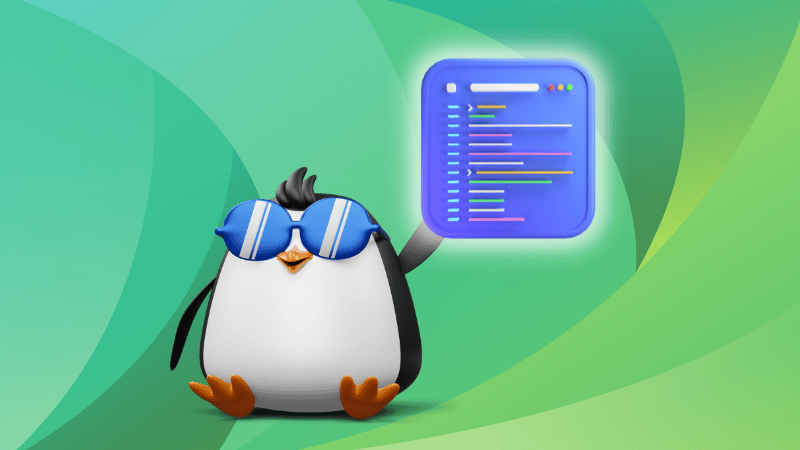
Microsoft’s Visual Studio Code is an excellent editor not only for web developers but also for other programmers. Due to its features, it’s considered one of the best open source code editors.
Yes, it’s one of the many open source products from Microsoft. You can easily install Visual Studio Code in Linux thanks to the ready to use binaries in the form of DEB, RPM and Snap packages.
And there is a problem which might not be an issue for a regular user but significant to an open source purist.
The ready to use binaries Microsoft provides are not open source.
Confused? Let me explain.
The source code of VS Code is open sourced under MIT license. You can access it on the GitHub. However, the installation files that Microsoft has created contain proprietary telemetry/tracking.
This tracking basically collects usage data and sends it to Microsoft to ‘help improve their products and services’. Telemetry reporting is common with software products these days. Even Ubuntu does that but with more transparency.
You can disable the telemetry in VS Code but can you trust Microsoft completely? If the answer is no, then what are your options?
You can build it from the source code and thus keep everything open source. But installing from source code is not always the prettiest option specially in today’s world when we are so used to of having binaries.
Another option is to use VSCodium!
VSCodium: 100% open source form of Visual Studio Code

VSCodium is a clone of Microsoft’s Visual Studio Code. This project’s sole aim is to provide you with ready to use binaries without Microsoft’s telemetry code.
This solves the problem where you want to use VS Code without the proprietary code from Microsoft but you are not comfortable with building it from the source.
Since VSCodium is a clone of VS Code, it looks and functions exactly the same as VS Code.
Here’s a screenshot of the first run of VS Code and VSCodium side by side in Ubuntu. Can you distinguish one from another?

If you have not been able to distinguish between the two, look at the bottom.

Apart from this and the logo of the two applications, there is no other noticeable difference.

Installing VSCodium on Linux
While VSCodium is available in some distributions like Parrot OS, you’ll have to add additional repositories in other Linux distributions.
You can use the following commands to install VSCodium on Ubuntu and other Debian-based distros.
First, add the GPG key of the repository:
wget -qO - https://gitlab.com/paulcarroty/vscodium-deb-rpm-repo/raw/master/pub.gpg | sudo apt-key add -And then add the repository itself:
echo 'deb https://gitlab.com/paulcarroty/vscodium-deb-rpm-repo/raw/repos/debs/ vscodium main' | sudo tee --append /etc/apt/sources.list.d/vscodium.listNow update your system and install VSCodium:
sudo apt update && sudo apt install codiumIf you use Snap, you can easily install it using:
snap install codium --classic
You can find the installation instructions for other distributions on its page. You should also read the instructions about migrating from VS Code to VSCodium.
Furthermore, you may also download the latest version of VS Codium from their release page:
What do you think of VSCodium?
There are many open source code editors available. VS Code is the most popular among them all if I am not mistaken, at least among the GUI-based editors.

Personally, I like the concept of VSCodium. To use the cliche, the project has its heart in the right place. I think Linux distributions committed to open source may even start including it in their official repository.
What do you think? Is it worth switching to VSCodium or would you rather opt out of the telemetry and continue using VS Code?
And please, no “I use Vim” comments :D


